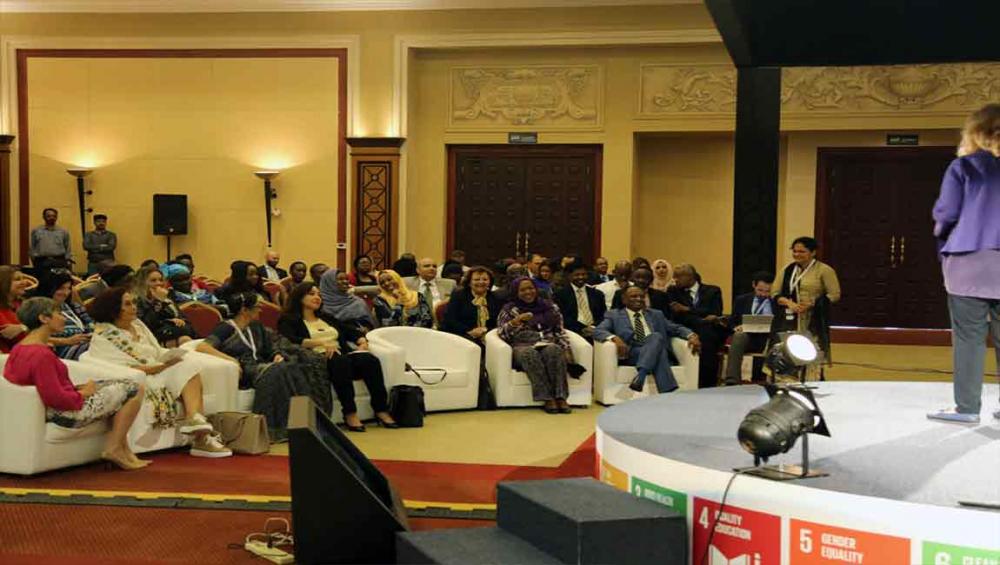Just Earth News | @Just Earth News | 01 Nov 2017

UN News/Vibhu Mishra
“This is a chance for everyone around the world – policy makers, investors, those in technology – to realize that women are not waiting for handouts, they are looking for opportunities. An opportunity is not a handout,” Adot Killmeyer-Oleche, the Chief of UN Industrial Development Organization (UNIDO) Institute for Capacity Development, told UN News.
“This is an important message for all of us – the UN, development activists and practitioners, and change agents,” she added.
At a plenary panel discussion on the theme of Women in industry policy makers, business persons, officials from financial institutions and UN agencies, and women and young entrepreneurs came together to discuss the challenges confronting women entrepreneurs and how to overcome them.
Women entrepreneurs often find themselves at the end of the value chain, not just in terms of employment, but also when it comes to access to knowledge, technology and the basic resources – particularly finance – to do business.
Adding to these barriers, women face very high level of stigma – a universal problem – with their projects and ideas not given the same level of attention or simply ignored because of the fact it came from a woman.
“Women have challenges at all levels – traditionally they have had challenges getting education and training […] or made to enter trades 'more associated' with their gender,” explained Killmeyer-Oleche, also a panellist at the session.
This discrimination is also evident in the lack of equal pay for equal work in many sectors around the globe.
One of the key ways to address these challenges, the panel discussed, is reforming laws and policies, integrating the gender dimensions. Another area of focus is training and education to ensure that young women and men, are imparted with the necessary skills to become entrepreneurs and are able to carefully analyse risks.
Using technology and innovative solutions, such as crowd-sourcing or community financing can help overcome some challenges, in particular those relating to accessing finance, said many participants.
But, above all, mind-sets across the world have to be changed, they stressed, noting that changed mind-sets will automatically improve the situation in other sectors.
“Attitudes change, but not overnight […] it is simply not acceptable to discriminate against women,” said Ina Cronje, Chairperson of the Board of Trade and Investment, KwaZulu-Natal (South Africa), a panel participant.
The session also saw the designation of Azza Fahmy, a prominent business woman and the Chairwoman and Creative Director of Jewellery of Egypt, as the UNDIO International Creative Woman Entrepreneur.
The panel discussion on women in industry was a key event held on the second day of the World Entrepreneurs Investment Forum, organized by UNDIO in partnership with the Government of Bahrain.
Other key events on Wednesday included a plenary session on global impact investing; a side-event on the 2030 Agenda for Sustainable Development implementation in Bahrain, jointly organized by UNDP, UNIDO ITPO-Bahrain and UN Global Compact; and partnership events for entrepreneurs.
UN News is in Manama, Bahrain, covering the Forum and its associated events. Follow @UN_News_Centre and @UNNewsArabic for up to date news and highlights from WEIF 2017.